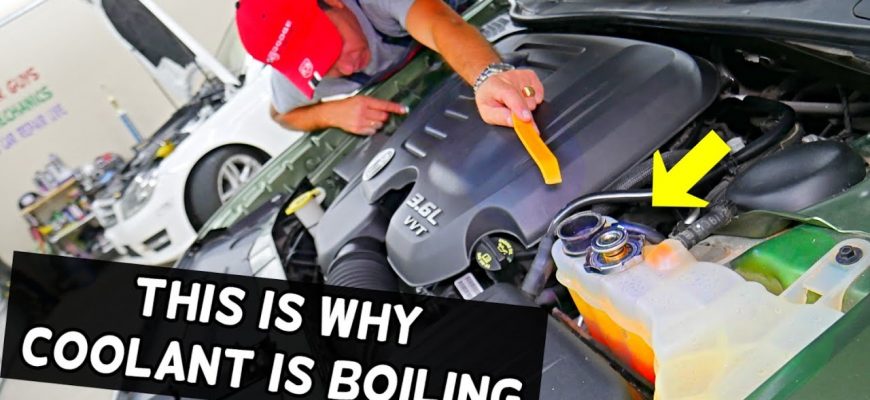As a vehicle owner, few things are as alarming as seeing the temperature gauge spike or smelling the unmistakable scent of overheating. One of the most common culprits behind these distress signals is boiling coolant. Understanding the causes of this phenomenon can not only save your vehicle from permanent damage but also ensure your safety on the road;
What is Coolant?
Coolant, also known as antifreeze, is a fluid that circulates through your vehicle’s engine, radiator, and heating system. Its primary purpose is to regulate the engine’s temperature by absorbing heat and preventing it from overheating. Typically, coolant is a mixture of water and antifreeze, which lowers the freezing point and raises the boiling point of the liquid, allowing it to perform effectively in various temperatures.
Common Causes of Boiling Coolant
- Insufficient Coolant Levels: One of the most straightforward reasons for boiling coolant is low coolant levels. If your vehicle is low on coolant due to leaks or evaporation, the remaining fluid can become too hot, leading to boiling.
- Faulty Thermostat: The thermostat is responsible for regulating the flow of coolant in your engine. If it fails to open, hot coolant cannot circulate, resulting in overheating and boiling.
- Radiator Issues: A clogged or damaged radiator can impede the flow of coolant, preventing it from dissipating heat effectively. This can cause coolant to boil over as the engine temperature rises.
- Water Pump Failure: The water pump circulates coolant throughout the engine; If it malfunctions, this circulation is disrupted, leading to localized overheating and boiling coolant.
- Pressure Cap Problems: The radiator cap maintains pressure within the cooling system. A faulty cap can cause the system to lose pressure, lowering the boiling point of the coolant and causing it to boil over.
- Engine Overload: Excessive load on the engine – whether due to towing, carrying heavy loads, or driving in extreme conditions – can lead to overheating, which in turn causes the coolant to boil.
Signs of Boiling Coolant
Recognizing the symptoms of boiling coolant can be crucial for preventing further damage. Look out for the following:
- Temperature gauge reading in the red zone
- Steam or smoke coming from under the hood
- Sweet smell of coolant
- Puddle of coolant under the vehicle
Preventative Measures
To avoid the troublesome issue of boiling coolant, consider these preventative measures:
- Regularly check and maintain coolant levels.
- Schedule routine vehicle maintenance to address any potential issues early.
- Inspect the radiator and hoses for leaks or damage.
- Replace the thermostat and water pump as needed, particularly if they show signs of failure.
Understanding the causes of boiling coolant is vital for any vehicle owner. By being proactive and vigilant, you can ensure that your vehicle’s cooling system operates efficiently, preventing costly repairs and ensuring your safety on the road. Remember, if you notice any signs of overheating or boiling coolant, it’s essential to address the issue immediately. Keep your engine cool, and it will reward you with reliable performance for years to come.










The information on how coolant works and its role in engine temperature regulation was enlightening. This article is a must-read for all car enthusiasts!
This article does an excellent job of highlighting the importance of regular maintenance checks. Understanding these factors can save drivers from major headaches!
I found the explanations of each cause of boiling coolant very useful. It
Fantastic article! The section on radiator issues really resonated with me as I’ve experienced overheating in my car before. Thanks for the insights!
I appreciate the detailed breakdown of common causes for boiling coolant. It’s helpful for any vehicle owner to understand these issues before they become serious problems.
This article provides a clear and concise explanation of coolant and its importance. I learned a lot about the potential issues that can lead to boiling coolant. Great read!